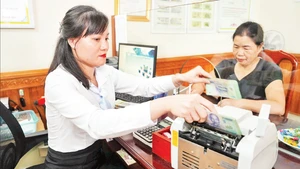In the first five months of 2025 alone, authorities nationwide handled over 40,000 cases of smuggling, counterfeit, and substandard goods, with total fines amounting to 6.5 trillion VND. Prominent among these was the prevalence of counterfeit goods in the food and pharmaceutical sectors, directly threatening people’s health and lives.
Therefore, building a reliable and transparent traceability ecosystem—serving production, distribution, and consumption both domestically and internationally, while protecting consumer rights, and enhancing the competitiveness of Vietnamese enterprises—is an inevitable trend in the digital economy and an important driver of sustainable national economic development.
According to Nguyen Huy, Head of Technology at the National Data Association, the application of technology for traceability is mandatory and must be institutionalised as a comprehensive, top-down policy, with coordinated management from central to local levels, applied to all enterprises, ensuring interoperability and legal validity in both governance and commerce.
In reality, many localities and enterprises have already implemented diverse anti-counterfeit and traceability solutions, such as physical anti-counterfeit stamps (holograms, destructible labels, thermal stickers), QR codes, and barcodes, electronic labels with SMS verification, and proprietary traceability systems at the local or enterprise level.
However, most traceability solutions remain localised and fragmented, as a unified national identification code has yet to be established. As a result, data is dispersed across ministries and sectors, creating difficulties in assessing and controlling goods.
The application of technology for traceability is mandatory and must be institutionalised as a comprehensive, top-down policy, with coordinated management from central to local levels, applied to all enterprises, ensuring interoperability and legal validity in both governance and commerce.
Nguyen Huy, Head of Technology at the National Data Association
The absence of control over goods on e-commerce platforms, coupled with the fact that businesses are not compelled to participate in national systems, has exacerbated the problem.
Bui Ba Chinh, Acting Director of the National Centre for Codes and Barcodes (under the Directorate for Standards, Metrology, and Quality), also stressed that the lack of integration between traceability systems and product quality inspection, as well as the absence of a centralised database, has left major gaps in assessing and controlling goods in the marketplace.
At the national level, designating blockchain as a strategic technology also establishes a legal corridor for research, mastery, and application of this technology across critical industries. Nguyen Huy affirmed that blockchain will enable Viet Nam not only to keep pace with global trends, but also to proactively shape international standards on traceability, data governance, and digital trade.
The government and ministries have issued numerous documents, standards, and schemes on product traceability. The National Product Traceability Information Portal has been in official operation since October 2024. Viet Nam has been part of the GS1 Global Identification System for products and supply chains since 1995.
The National Assembly has passed the Law amending and supplementing a number of articles of the Law on Product and Goods Quality, effective from January 1, 2026, marking a major breakthrough in risk management and promoting digital transformation in product and goods quality.
The Ministry of Science and Technology has announced 35 Vietnamese Standards on traceability, including TCVN 13274:2020, which defines guidelines on trace code formats to support traceability systems.
The National Data Association also led the development and operation of the national blockchain platform (NDAchain) at the end of 2024. Based on NDAchain applications, the National Platform for Product Identification, Authentication, and Traceability (NDATrace) will soon be officially launched, enabling transparent and automated authentication processes.
From the business perspective, Hoang Tuan Anh, Chief Information Officer of ECO Pharma JSC, stressed that for the identification, authentication, and traceability system to be truly effective, it must be guaranteed by state authorities.
He added that standardising code formats, integrating, and interconnecting data between ministries and agencies with the National Data System is essential. In addition, a rapid feedback mechanism should be established between consumers, distributors, and state regulators, while the list of certified traceable products should be made public.
In the process of digital transformation and digital economy development, as the demand for transparency in product origins and food safety becomes increasingly urgent, blockchain is not only protecting consumers’ health and business brands, but also shaping a transparent and secure economy. Here, all stakeholders—government, businesses, and citizens—participate and benefit from trusted data. This foundation strengthens consumer confidence and elevates the value of Vietnamese goods within global value chains.
















